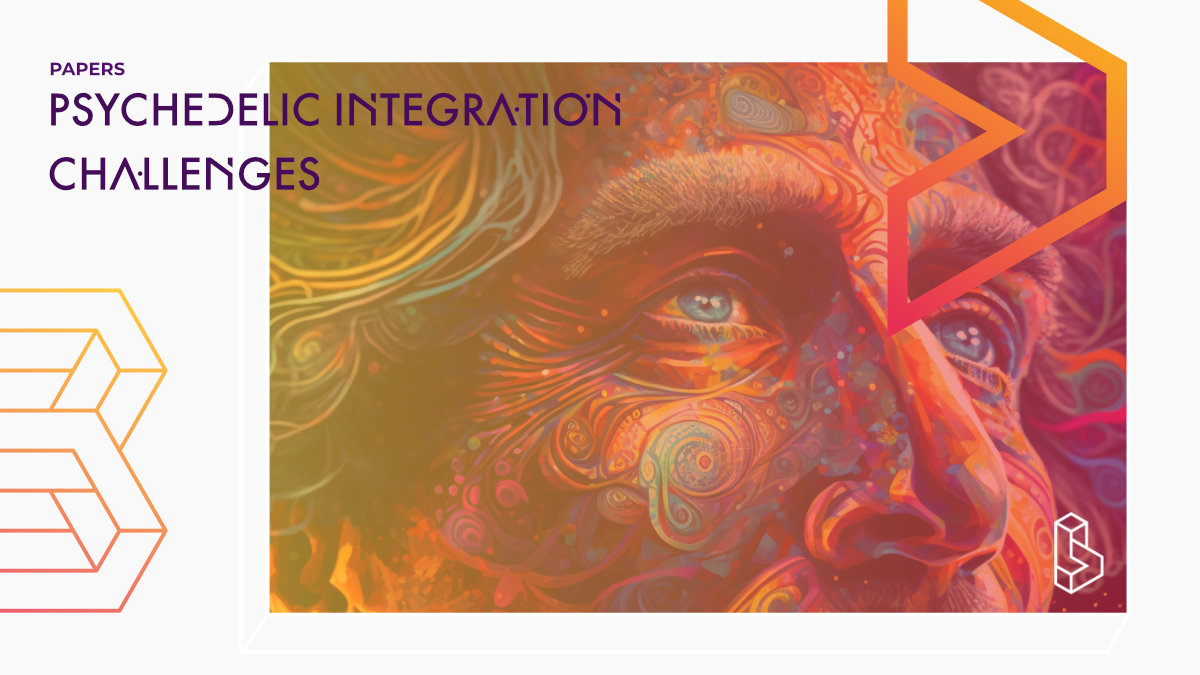This interview study (n=30) investigates the experience of those who attended a psilocybin truffle retreat in The Netherlands. It finds that 30% experienced challenges in integration (e.g. spiritual bypass, lack of support) which also correlated with positive after-effects including long-term remission of significant health conditions.
Abstract
“This article reports on integration challenges that were experienced by nine individuals who attended a three-day legal psilocybin truffle retreat in the Netherlands. The study employed a qualitative phenomenological approach, using semi-structured interviews to gain an understanding of participants’ (n = 30) psilocybin experiences and their after-effects. While the study did not actively seek to measure integration issues or unexpected side effects, nine out of thirty participants (30%) spontaneously reported a post-experience integration challenge. These challenges included: mood fluctuations, ‘post-ecstatic blues’, disconnection from community, re-experiencing symptoms, spiritual bypass and perceived lack of support. Integration challenges were transient; they occurred immediately after the psilocybin experience (once the main psychedelic effects had worn off) and in the days and weeks following the retreat, and resolved with time. Integration challenges were also correlated with positive after-effects including long-term remission of significant health conditions. The experiences related in this article align with existing literature that describes the ‘spiritual emergency’ phenomenon; that is, the potential challenges that can arise after ecstatic experiences and how these challenges may be integral to the transformative potential of such experiences. We discuss the implications for psychedelic integration and harm reduction practices and for future psychedelic research.“
Authors: Anna Lutkajtis & Jules Evans
Summary of Psychedelic integration challenges
Psychedelics are psychoactive substances that engender an altered state of consciousness. They have been used in religious and healing rituals throughout history, and are now gaining renewed interest in the West.
Most current psychedelic research is focused on the potential therapeutic effects of these compounds, including treatment-resistant depression, cancer-related distress, obsessive-compulsive disorder, substance use disorders, eating disorders, and neurodegenerative disorders.
There is a small but growing body of research on challenging and adverse psychedelic experiences, which may include feelings of anxiety, panic, paranoia, confrontations with personal trauma, a sense of ‘losing oneself’ or the fear of ‘going crazy’.
Study details
Compounds studied
Psilocybin
Topics studied
Healthy Subjects
Study characteristics
Interviews
Qualitative
Participants
30
Humans
Institutes
Institutes associated with this publication
SynthesisThe Synthesis Institute is a pioneering organization that offers both training and legal psychedelic sessions in The Netherlands. The services offered range from a weekend to 5-day retreats. The price does match the professional and scientific vibe.

